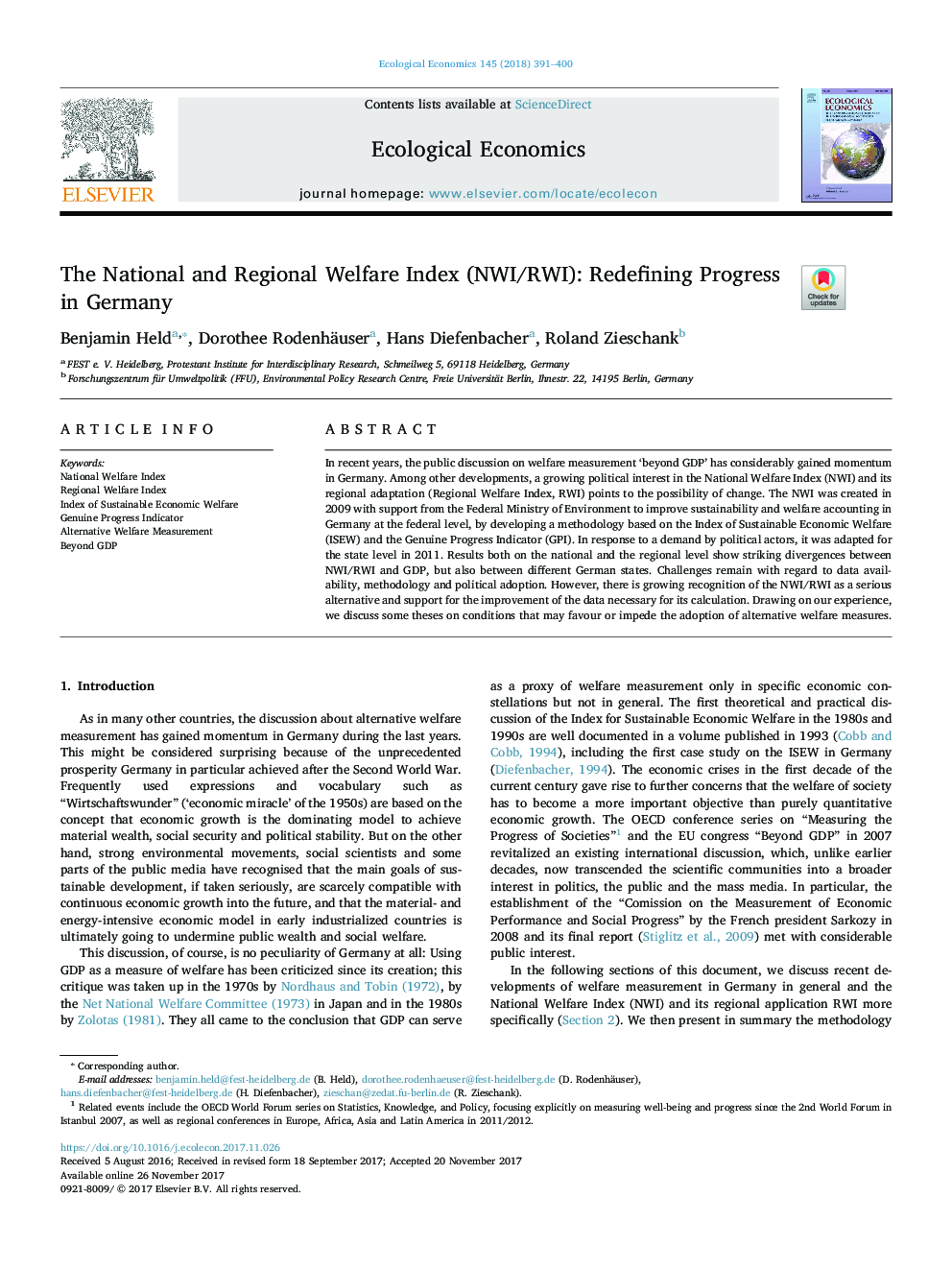| Article ID | Journal | Published Year | Pages | File Type |
|---|---|---|---|---|
| 7344606 | Ecological Economics | 2018 | 10 Pages |
Abstract
In recent years, the public discussion on welfare measurement 'beyond GDP' has considerably gained momentum in Germany. Among other developments, a growing political interest in the National Welfare Index (NWI) and its regional adaptation (Regional Welfare Index, RWI) points to the possibility of change. The NWI was created in 2009 with support from the Federal Ministry of Environment to improve sustainability and welfare accounting in Germany at the federal level, by developing a methodology based on the Index of Sustainable Economic Welfare (ISEW) and the Genuine Progress Indicator (GPI). In response to a demand by political actors, it was adapted for the state level in 2011. Results both on the national and the regional level show striking divergences between NWI/RWI and GDP, but also between different German states. Challenges remain with regard to data availability, methodology and political adoption. However, there is growing recognition of the NWI/RWI as a serious alternative and support for the improvement of the data necessary for its calculation. Drawing on our experience, we discuss some theses on conditions that may favour or impede the adoption of alternative welfare measures.
Related Topics
Life Sciences
Agricultural and Biological Sciences
Ecology, Evolution, Behavior and Systematics
Authors
Benjamin Held, Dorothee Rodenhäuser, Hans Diefenbacher, Roland Zieschank,
